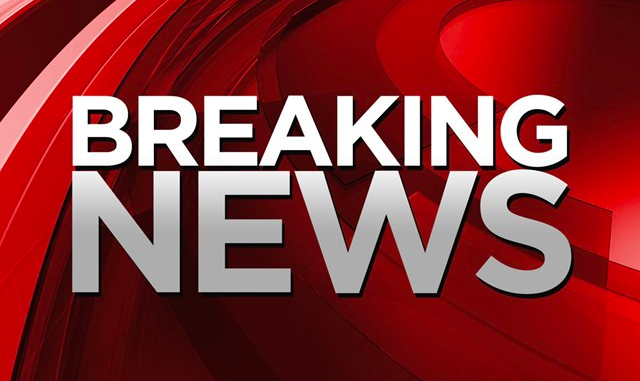

Exposed!! Popular Abuja doctor revealed how men can naturally and permanently cure poor erection, quick ejaculation, small and shameful manhood without side effects. Even if you are hypertensive or diabetic . Stop the use of hard drugs for sex!! It kills!
The Nigerian Government has received the sum of $191 million health systems strengthening (HSS) grant from the Global vaccine alliance, Gavi to reach 1.8 million children that have never received a single vaccine.
This is targeted at increasing national immunisation coverage to 84 per cent by 2028.
Gavi Director of Health Systems and Immunisation Strengthening, Alex de Jonquieres, announced this on Saturday on behalf of its CEO, Dr. Sania Nishtar, at the official launch of the new phase of the Health Systems Strengthening programme (HSS 3) in Abuja.
How To Overcome Quick Erection And Have A Big Cucumber And Very Strong Also Last For More Than 1 Hour [This Product Will Help You]

Commending Gavi for its long-standing support to the country’s health sector, Minister of Health and Social Welfare, Prof. Ali Pate expressed deep appreciation for the decades-long partnership, noting that the country does not take the alliance’s commitment for granted.
Pate, represented by the Director of Planning, Research and Statistics, Dr. Kamil Shoretire said, “Gavi’s investments have saved millions of lives in Nigeria and enabled the country’s immunisation programme to recover from the effects of the COVID-19 pandemic. We’ve also been able to introduce life-saving vaccines such as those for HPV, malaria, and Mpox”.
He emphasised that Gavi’s mission of saving lives and improving equitable access to vaccines aligns with Nigeria’s broader health sector reform goals under the Health Sector Renewal Investment Initiative (NHSRII).
These reforms, he said, aim to save lives, reduce both physical and financial pain, and ensure health for all Nigerians.
The Minister noted that the growing health sector budget and increased mobilisation of domestic funds to fill gaps left by changing donor policies were evidence of this commitment.
“All donor contributions, including those from Gavi, will be complemented with domestic resources and managed with transparency and accountability at all levels”, the minister assured.
He also highlighted the progress made under HSS 2, which helped to strengthen primary healthcare services across the country.
Pate also praised the leadership of the National Primary Health Care Development Agency (NPHCDA) and other implementing agencies for their roles in the programme’s success.
He further noted the improved coordination within the country’s health sector following the signing of the Health Sector Compact by President Bola Tinubu in December 2023 and the adoption of the Sector-Wide Approach (SWAp).
These moves, he said, have helped minimise resource wastage and programme duplication.
He again thanked Gavi’s leadership for their dedication to vulnerable populations and expressed confidence that the HSS 3 grant will contribute significantly to the health and wellbeing of Nigerians.
Since 2000, Gavi has supported the immunisation of 1.1 billion children globally, averting 18.8 million future deaths and generating $220 billion in economic benefits.
De Jonquieres said Nigeria has been a critical part of this success, with more than 62 million children vaccinated and an estimated two million deaths prevented through Gavi’s $2.4 billion investment in vaccines and system strengthening.
“This $191 million grant—the largest of its kind, builds on our ongoing efforts and is part of a long-term strategy tailored specifically for Nigeria,” he said.
Since 2018, Gavi and the federal government have collaborated under a special 10-year strategy that has enabled the introduction of nine vaccines, including those for HPV and malaria.
The partnership has also expanded immunisation to 1.7 million zero-dose children and reached more than 91 million under-five children through campaigns, he added.
According to Gavi, the impact on health infrastructure has been significant, with over 11,000 cold chain equipment units installed and more than 3,600 health workers recruited across eight supported states; Bayelsa, Gombe, Jigawa, Niger, Katsina, Kebbi, Taraba, and Zamfara.
Also, nearly 500 primary healthcare centres have been renovated, and logistical support has been bolstered with motorcycles, buses, boats, and a refrigerated van to improve vaccine distribution.
The newly launched HSS 3 grant was developed through an inclusive planning process involving federal and state agencies, WHO, UNICEF, civil society, and the private sector.
Nearly 80 per cent of the funding will support sub-national efforts, with over 10 per cent channeled to community-level civil society organisations. Traditional leaders will also play a key role in mobilisation and advocacy.
In addition to the HSS 3 grant, Gavi said it is investing nearly $100 million in a nationwide measles and rubella vaccination campaign targeting over 100 million children, its largest campaign ever in Nigeria.
Gavi emphasised that its investments are designed to be catalytic and work in alignment with Nigeria’s health sector reforms led by Prof. Pate.
The organisation called for continued domestic investment in immunisation and greater accountability to ensure that every Naira spent delivers lasting improvements.
“I believe Nigeria is on the cusp of transforming its immunisation programme,” de Jonquieres stated, adding that “Today marks the first step toward a future where no child dies from a vaccine-preventable disease.”
